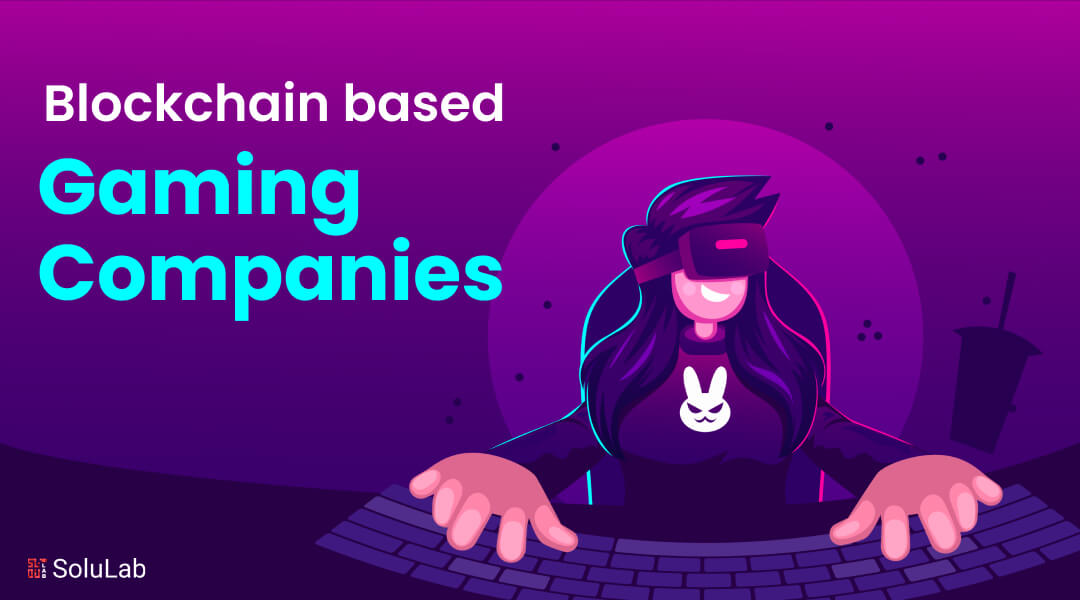BD Help Zone
Your go-to source for insightful news and information.
Level Up Your Play: Why Blockchain Based Gaming is the Next Frontier in Fun
Discover why blockchain gaming is revolutionizing playtime! Explore the next frontier of fun and unlock new experiences today!
Understanding Blockchain Gaming: How It Transforms the Player Experience
Understanding Blockchain Gaming represents a significant leap forward in how players engage with and experience games. Unlike traditional gaming, where players often invest time and money into virtual assets without any tangible ownership, blockchain gaming empowers players by using decentralized technology. This means that in-game items, achievements, and currencies are stored on a blockchain, ensuring that players have true ownership of their assets. As a result, players can freely trade, sell, or even use these assets across multiple games. This transformative approach enriches the gaming experience by offering unprecedented transparency and security to players.
One of the most notable impacts of blockchain technology on gaming is the introduction of play-to-earn models. In these models, players can monetize their time and skills, earning real-world value through gameplay. This shift not only incentivizes greater player participation but also fosters a sense of community and shared economy within the gaming ecosystem. Additionally, with the rise of non-fungible tokens (NFTs) in gaming, players can own unique digital assets that represent their achievements and characters, further enhancing engagement and investment in the game. As blockchain continues to evolve, its role in transforming the player experience will become increasingly vital, reshaping the future of the gaming industry.

Counter-Strike is a popular tactical first-person shooter game that has been a staple in the gaming community since its initial release. Players can participate in team-based matches, where one side takes on the role of terrorists while the other acts as counter-terrorists. To stay ahead in the game, players often look for various resources and opportunities, such as a rollbit promo code to enhance their gaming experience.
The Benefits of Play-to-Earn: Why Gamers Are Flocking to Blockchain
The play-to-earn model is revolutionizing the gaming industry, providing players with unique opportunities to earn real-world value through their in-game activities. One of the primary benefits is the financial incentive; gamers can earn cryptocurrency or NFTs simply by playing their favorite titles. This not only enhances gameplay engagement but also allows players to monetize their skills and time spent in the virtual world. In essence, players are no longer just consumers of content, but are now also contributors to the ecosystem, benefiting from their participation in ways that were previously unimaginable.
Another significant advantage of the play-to-earn model is the sense of community it fosters among players. Blockchain technology enables transparent ownership of in-game assets, which means that players can trade, sell, or lease their items within a secure and decentralized marketplace. This creates a vibrant community where players can collaborate and share strategies to maximize their earnings. Moreover, as the blockchain ecosystem continues to grow, gamers are increasingly drawn to these platforms, where their contributions are recognized and compensated, solidifying their loyalty and passion for the games they enjoy.
Is Blockchain Gaming the Future? Exploring Trends and Predictions
The rise of blockchain gaming has sparked significant interest across the tech and gaming industries, with many experts predicting it could redefine the landscape of digital entertainment. One major trend fueling this transformation is the concept of ownership; players can now truly own their in-game assets through non-fungible tokens (NFTs). This shift allows gamers to buy, sell, and trade their items in a decentralized marketplace, providing not only a new revenue stream but also a sense of authenticity and value that traditional gaming often lacks. Furthermore, the integration of smart contracts opens up possibilities for developers to create more engaging and fair gameplay experiences.
In addition to ownership, the future of blockchain gaming is also likely to feature enhanced gameplay experiences enabled by cross-platform integrations and interoperability. As various gaming ecosystems begin to support blockchain technology, we can expect a surge in innovative game development that merges different genres and enhances social interaction among players. Many analysts suggest that as these trends evolve, we may witness a significant shift in how games are monetized and consumed, with play-to-earn models gaining traction, allowing players to earn real-world income through their gaming achievements. This evolution raises exciting questions about the sustainability and potential of the gaming economy in a blockchain future.